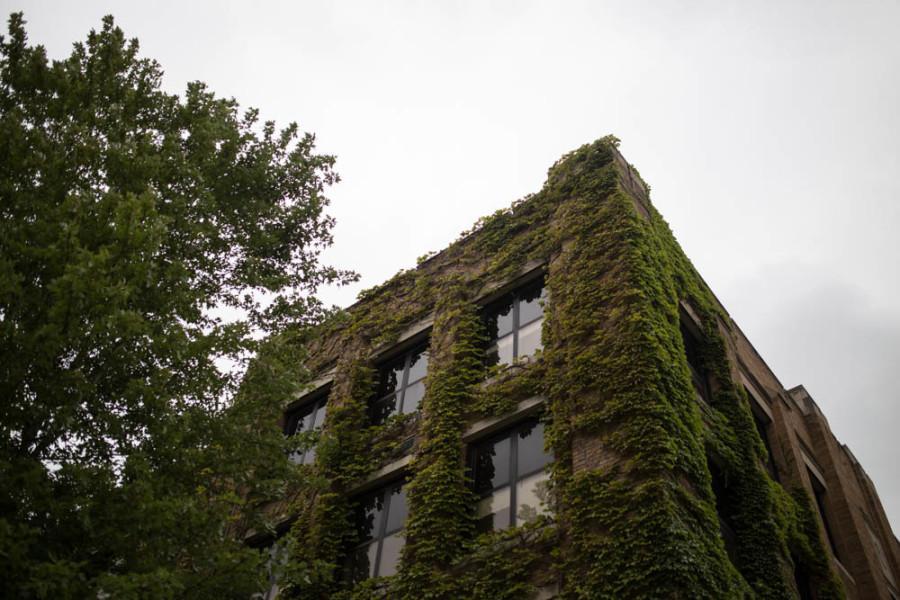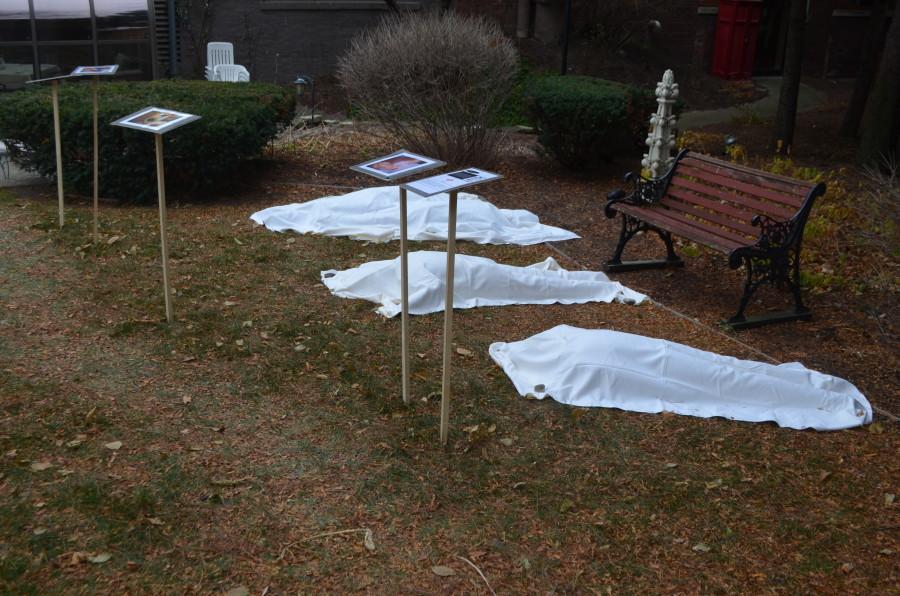In 1910, the College of Economics and Journalism was founded at Marquette University. Seven years later, in 1917, they split to form the College of Business and the College of Journalism, the latter of which joined with the speech programs to form what is now the College of Communication. In 1936, the College of Nursing was also founded.
This year, business and journalism celebrate their centennials at Marquette, and the College of Nursing is celebrating “75 Years of Caring.” All three colleges held events throughout the year in celebration of these milestones.
Journalism
Herbert Lowe, professional in residence in the Diederich College of Communication and a co-coordinator for the journalism centennial, said his work on the centennial has been enlightening.
“I’m blessed to have had some success,” said Lowe, a former president of the National Association of Black Journalists and a 1984 Marquette graduate. “What I have appreciated personally during this process is the chance to learn about the successes of our alumni … I really had no idea of the successes of others.”
Throughout the course of the semester, Lowe worked with five students to research the history of journalism at Marquette, contact many notable alumni to develop a timeline of the program and create the “100 Words” project, a collection of 100-word essays from alumni detailing their memories of Marquette, which can be found on the centennial’s website.
Excerpts from the 100-Words Project
Michael Grimaldi, Senior Communications Consultant, Trozzolo Communications Group (Kansas City, MO):
“The journalist is a question asker. So taught Prof. Albion Ross to my advanced reporting class in 1971. These are words I’ll never forget, and live by every day. Think about it. The heart of knowledge is enlightened inquiry. Ask the right questions in the right way at the right time, and you gain knowledge and strive for truth, which journalists are called to do. Answers are one thing. Questions require thought, insight and brilliance. The right question challenges, but respectfully so. It illuminates, but collaboratively so. It inspires, and divinely so. Lest we forget: It’s a Jesuit thing, too.”
Tim Cigelske, Communication Specialist, Marquette Office of Marketing and Communication (Whitefish Bay, WI):
“Constantly getting pushed outside my comfort zone was the common denominator to my Marquette journalism education. As a scared freshman, I was encouraged to take an Associated Press position from Kevin Orland, the Tribune managing editor. In the classroom, teachers like Paul Salsini and Gail Perlick challenged me to never accept ‘good enough’ and to keep digging to get the key quote, anecdote or person. And at the Tribune, I had opportunities to leap headlong into projects, find success or fail spectacularly and start over again to grow as a person and a journalist. I’m thankful that these experiences helped me adapt to a variety of professional environments, especially as we enter a radically new digital era.”
Charlene Gaynor, Chief Executive Officer, The Association of Educational Publishers (Wilmington, DE):
“Marquette makes you memorable. As a J-school sophomore, I joined a group of volunteers in 1968 on a bus trip to Gary, Ind. We canvassed door-to-door for the renegade presidential candidate, Eugene McCarthy. History recorded the end of the story, or so I thought. Working on a community project near my home in North Carolina 30 years later, I was approached by an unknown neighbor. ‘Did you take a bus from Marquette in 1968 to campaign for Eugene McCarthy?’ he asked. ‘Why, yes,’ I responded. ‘How did you know?’ He replied, ‘I was the bus driver.’”
Nursing
The College of Nursing’s theme for the year is “75 Years of Caring,” a focus on celebrating the accomplishments of Marquette nurses throughout the years.
“Marquette nurses are different,” said Margaret Callahan, dean of the College of Nursing. “They really do exude the Marquette and Ignatian mission about care for others. And they carry it with them throughout their careers.”
Along with a yearlong series of guest lecturers and visiting scholars, the College of Nursing is updating its history, to be published in a book this summer.
“We’re very excited about capturing not only the history from a timeline perspective, but really the accomplishment of Marquette nurses and the contributions they have made to the profession in very meaningful ways, in terms of scholarship (and) educational advancement,” Callahan said.
Callahan said she is excited about plans to renovate Emory Clark Hall to include facilities allowing for more hands-on learning. This is expected to happen within the next five to 10 years, and will include several working hospital rooms, giving nursing students the chance to gain invaluable experience with patients.
Business
Marquette offered its first business class in 1905, but the College of Business Administration was not established until 1910, when several donations finalized its construction with the addition of a business library.
Celebrations were planned nationwide for alumni to celebrate the centennial, in San Francisco, New York, Atlanta and Chicago at CIRCLES (a business networking program) alumni events. The culmination will be a celebration for faculty, friends, alumni and supporters on May 14.
To commemorate their centennial, the College of Business Administration is compiling submissions of alumni memories and stories through their website. The Spring/Summer edition of the college’s alumni magazine contains highlights of the last 100 years, from the first class of 106 male and six female students to the construction and expansion of Straz Hall. The college also produced a commemorative video and slide show, which includes a pictorial history of the college.
“This is likely the most significant milestone in the history of the college,” said Linda Salchenberger, dean of the College of Business Administration, in an e-mail.
While there have been countless changes to the college, much remains the same.
“The theme (of the centennial) is that while classrooms, students and faculty, clothing and style of learning have changed, our Jesuit business values remain the same — to be thought leaders in our fields, to educate socially responsible global leaders and to serve the needs of business and society through community outreach initiatives,” Salchenberger said.
Looking forward, Shrock said the college would like to open itself up to the entire Marquette community.
“We would like to continue to be a resource for all Marquette students and work with other colleges to provide Marquette students more opportunities to learn about business,” Salchenberger said.
Excerpt from Centennial “Share Your Story”
William Caraher, MBA 2008:
“Walking into my first MBA class, I wasn’t sure what to expect. We kicked off the program with a difficult case study on Li Ning athletic shoes in China. My cohorts and I all remember that first case study for many reasons; but mainly because it challenged our way of critical thinking and reasoning. I found it refreshing that the Marquette MBA program focused on the international business challenges as much as they focused on the local and domestic issues of running a successful business. We live and work in a global economy and Marquette not only understands that, they live it and teach it. Marquette’s reputation in the business community is second to none. I am proud to be a part of the Marquette Business School alumni and hope to give back as I advance my career and reach my goals.”





